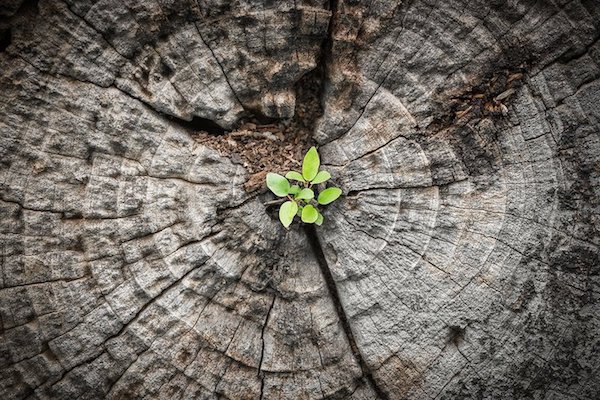Three things to consider
It is estimated that 6 percent of American women now hire birth doulas for emotional, physical and even spiritual support during labor and delivery. Twenty years ago, when the birth and postpartum doula movement was in its nascent stage, this percentage was certainly much, much lower.
In fact, 20 years ago, the word “doula” itself evoked quizzical looks. Even 10 years ago, following my initial certification with DONA International, friends, family and colleagues would often inquire: “What’s a doula?” Today, the term has become a part of our common lexicon. Most Americans recognize its meaning: A birth doula is a professional trained in comfort measures, listening techniques and providing compassionate care to women as they labor to give birth.
But, what about death?
How many Americans have heard of “death doulas”?
Today, wise and creative cultural pioneers lead a burgeoning movement in applying key elements of the birth doula model to train people to companion each other in death. Given that our experience of death has become so institutionalized and medicalized, applying the doula model of care to death and dying represents a sane and needed grounding in the wisdom of compassion, companioning and proven comfort measures.
 Henry Fersko-Weiss is such a pioneer. Author of “Caring for the Dying: The Doula Approach to a Meaningful Death,” Fersko-Weiss has trained more than 350 death doulas through the International End of Life Doula Association. Fersko-Weiss believes that the end-of-life doula movement will grow faster than the birth doula movement did because the birth doula movement “brought the word doula into American consciousness.”
Henry Fersko-Weiss is such a pioneer. Author of “Caring for the Dying: The Doula Approach to a Meaningful Death,” Fersko-Weiss has trained more than 350 death doulas through the International End of Life Doula Association. Fersko-Weiss believes that the end-of-life doula movement will grow faster than the birth doula movement did because the birth doula movement “brought the word doula into American consciousness.”
As someone who holds space for both birth and death, I’m hopeful that Fersko-Weiss is right. My specialty is in working with bereaved parents who know the pain of miscarriage, stillbirth and/or infant death. I’ve witnessed firsthand that there is much wisdom to be gained by applying the doula approach of caregiving to the concluding threshold points of our earthly existence. Certified hospice and palliative nurse and end-of-life doula Deanna Cochran agrees. Cochran has been mentoring and training death doulas since 2010. She remembers her initial pull to death doula work after working for several years in acute care and oncology. She remembers how it became “overwhelmingly clear” that “so much needless suffering was going on, and I wanted to be a part of changing that.”
When our loved ones are dying, we certainly work diligently to end needless suffering. But much of human suffering is emotional and psychological. Physical pain can be alleviated through medicine, but what of the pain of grief? Just as more and more American women have turned to birth doulas to help buoy their courage and strength as they traverse the landscape of labor and delivery, more and more Americans – should they know death doulas exist – will turn to death doulas to companion them through the wilderness of loss.
So, what to look for when hiring a death doula? Consider these three simple points.
- Seek out someone who has experience and training. Seek out a certified death doula, if possible. A growing number of organizations offer quality end-of-life doula training. Inquire if a certified and/or trained doula works in your vicinity. If possible, interview more than one potential candidate to ascertain which doula will be the best match for your situation. Inquire about their training, past experience, philosophy in holding vigil and what specific comfort measures they can bring to both the dying and the bereaved.
- Seek online and/or phone support as needed. Trained death doulas may not live in your area, but in the age of Skype and FaceTime, one can still benefit from a virtual companion. While there is much to be said for face-to-face interaction and the healing power of comforting touch, it is better to have quality support than to go without care. If you are the primary caregiver for a dying relative or friend, reaching out to expand your own support network is especially a very good idea.
- Read and research about the doula approach to caring for the dying. It’s certainly possible to bring key aspects of doula caregiving into one’s personal experience with family and friends. Knowledge and insight gained can help you strengthen your confidence and expand your skill set as you offer your presence in vigil for the dying.
Each month, I receive emails from individuals interested in finding an end-of-life doula. “Can you help me find a death doula? My grandfather is dying.” Or “My mother is nearing death and I’m alone in caring for her, can you recommend an end-of-life doula who can support us?” Such requests carry the weight of a great deal of sadness. It’s helpful to remember that we don’t have to walk through the valley of bereavement alone. Whether our grieving is extremely complicated or pretty straightforward, it is real. It hurts. And death doulas are here to offer up their compassion and skill. They hold us as we hold our sorrow.
Complete Article HERE!

